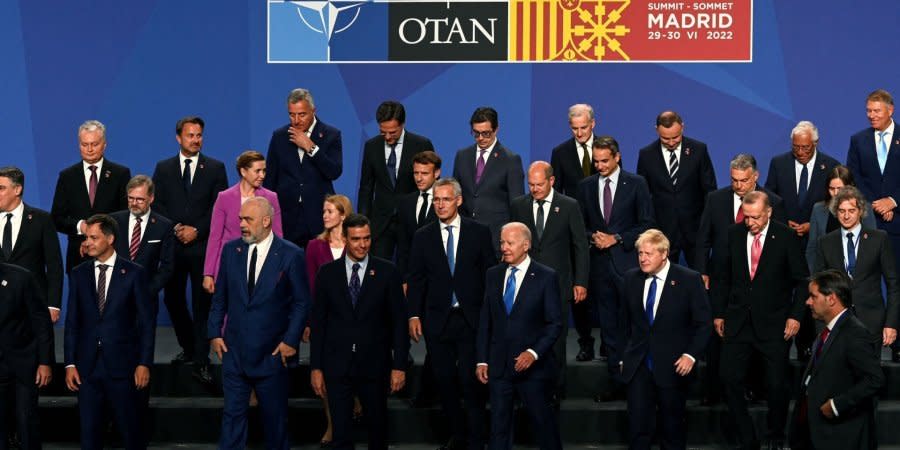NATO leaders call Russia ‘most significant and direct threat’ to allies' security

The document lists NATO's priorities, key objectives and approaches for the next decade, as well as describing NATO's security situation, values and key objectives for ensuring the collective defense of the allies.
The alliance also addressed the issue of China for the first time, and the challenges that Beijing poses toward the allies' security, interests and values.
Read also: NATO officially invites Sweden and Finland to join the alliance
The new Strategic Concept also states that climate change is "a defining challenge of our time."
"We will continue to develop our partnerships with Bosnia and Herzegovina, Georgia and Ukraine to advance our common interest in Euro-Atlantic peace, stability and security," the document says.
"We reaffirm the decision we took at the 2008 Bucharest Summit and all subsequent decisions with respect to Georgia and Ukraine."
It is also noted that "the Russian Federation's war of aggression against Ukraine has shattered peace, and gravely altered our security environment. Its brutal and unlawful invasion, repeated violations of international humanitarian law and heinous attacks and atrocities have caused unspeakable suffering and destruction."
Read also: Russia wants to absorb everyone in Europe, says Zelensky
"A strong, independent Ukraine is vital for the stability of the Euro-Atlantic area," NATO said.
The new Strategic Concept emphasizes that Russia "seeks to establish spheres of influence and direct control through coercion, subversion, aggression and annexation. It uses conventional, cyber and hybrid means against us and our partners. Its coercive military posture, rhetoric and proven willingness to use force to pursue its political goals undermine the rules-based international order."
At the same time, NATO stressed that it does not seek confrontation and poses no threat to the Russian Federation.
"In light of its hostile policies and actions, we cannot consider the Russian Federation to be our partner," it said.
"However, we remain willing to keep open channels of communication with Moscow to manage and mitigate risks, prevent escalation and increase transparency."
Read also: US to increase its military presence in Europe, says Biden
It is also mentioned that the strategic nuclear forces of the alliance, particularly those of the United States, are the supreme guarantee of the allies’ security.
"NATO will remain a nuclear alliance as long as nuclear weapons exist," the document states.
The previous version of the strategic concept was adopted at the NATO summit in Lisbon in 2010.
The alliance then described Russia as a partner.

